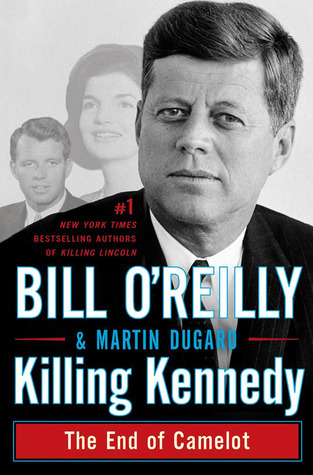Killing Kennedy Book Summary
The End of Camelot
TL;DR
Killing Kennedy: The End of Camelot by Bill O'Reilly and Martin Dugard explores the life, political challenges, and assassination of John F. Kennedy, detailing how this pivotal event shaped America's history and culture.
What is Killing Kennedy about
Killing Kennedy: The End of Camelot details the life of John F. Kennedy during a crucial period in American history, from his ascension to the presidency through his tumultuous time in office and culminating in his assassination in Dallas. Written by Bill O'Reilly and historian Martin Dugard, the book provides a gripping narrative that illustrates both the personal struggles of JFK and the geopolitical tensions of the Cold War, such as the threats posed by Khrushchev and Castro. The authors delve into the complexities of Kennedy’s public persona and the darker elements of his presidency, revealing the enemies he made along the way and the circumstances that led to his tragic death. This blend of biography and historical narrative invites readers to reflect on the enduring legacy of JFK and the cultural upheaval that followed his assassination.
Killing Kennedy 5 Key Takeaways
The Complexity of JFK's Presidency
Kennedy's presidency was marked by significant challenges, including the Cold War, civil rights movements, and political intrigue, which shaped his leadership and legacy.
The Role of the Media
The book highlights how media scrutiny affected JFK and Jackie, impacting their public image and personal lives amid a backdrop of political turbulence.
Enemies Within and Abroad
Kennedy faced threats from international figures like Khrushchev and Castro, as well as domestic adversaries, including organized crime and political rivals, complicating his mission.
Cultural Impact of Assassination
The assassination of JFK not only shocked the nation but also catalyzed cultural and political changes in America, influencing the course of the Vietnam War and societal attitudes.
The Aftermath of Assassination
In the wake of Kennedy's death, the nation experienced chaos and grief, leading to a profound reevaluation of leadership, trust, and the future of America.
Top Killing Kennedy Quotes
- The murder of President Kennedy was not just a tragic event; it was a turning point in American history.
- In the end, the ideals of Camelot could not withstand the harsh realities of political life.
Who should read Killing Kennedy?
Killing Kennedy appeals to history enthusiasts, students, and anyone interested in understanding the complexities of American politics during the Cold War era. Readers will gain insights into the intricate dynamics of leadership and the impact of seminal events on national identity.
Killing Kennedy Best Reviews
- A gripping account of one of history's most tragic events that illustrates the complexities of leadership under immense pressure. - The New York Times
- O'Reilly and Dugard have crafted a compelling narrative that balances the personal and political aspects of Kennedy's life. - Houston Chronicle
People also liked these summaries
Killing Kennedy FAQs
What makes Killing Kennedy different from other books about JFK?
Killing Kennedy combines a detailed examination of Kennedy's life and presidency with the dramatic recounting of his assassination, offering a unique perspective on the personal and political implications of his leadership.
Is this book suitable for academic study?
While Killing Kennedy is accessible to the general public, it also provides substantial historical context and analysis that can benefit those studying American history and politics.

